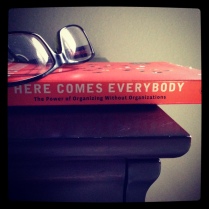
Seattle, WA – Circa October 1998
Some experiences evade the threat of failing memory through sheer sureality.
The first time I visited a Muslim household was to celebrate the holiday called Eid al-Fitr, which concludes the fasting month of Ramadan. By custom, the children of the family offered me candy from a bowl, as if I had come to the door trick-or-treating. Sitting in the living room of their modest apartment, my head swam as the men of the house spoke to each other in Kurdish.
A Ham At A Bar-Mitzvah
I felt incredibly out of place, but that wasn’t the bizarre moment that I remember so well. It was in the car on the way to visit the next Kurdish home that I suddenly wondered how my life had brought me to this moment.
My new friend was driving. Bob was a giant of a man. I’m not extremely tall, but most men aren’t a full head taller than me. The little car he drove made him look even bigger after he squeezed himself in behind the steering wheel.
He navigated the roads of Seatac and belted out hymns from memory in a deep singing voice that could have won him a role in an opera.
That was the moment I remember. Had I really chosen this situation?
The Key People We Meet In Our Lives
Someone introduced me to Bob while I lived on Vashon Island. I told him of my plans to move to Lebanon, and asked him how I should prepare to live there.
“How many Muslims friends do you have?” He asked.
“Uh. None,” I confessed.
“Come with me and I’ll introduce you to some.”
He had helped to resettle Kurds into refugee camps from the mountains in northern Iraq after the first Gulf War. Many in the Kurdish community in Seattle had followed him there after Sadamm Hussein regained control.
Bob mentored me without my realizing or fully appreciating it at the time – and I wasn’t alone. I met others in his home, where he and his wife Jan gathered and fed us. The encouragement I found around that table gave me the courage to step into unusual, uncomfortable moments. He challenged me be courageous when I didn’t know what to expect.
Seeking Out People To Influence Us
When was the last time you experienced something bizarre enough to be memorable?
Sometimes it only takes talking about our dreams with people who have already lived them out, and saying, “okay,” when they offer a suggestion. Otherwise, it seems too hard to get started on your own, and you wind up having to live with the itch, like a burr in your saddle, or a raspberry seed stuck in-between your teeth.
There you have it – in a nutshell. Everyone should be mentored by giants like Bob.






